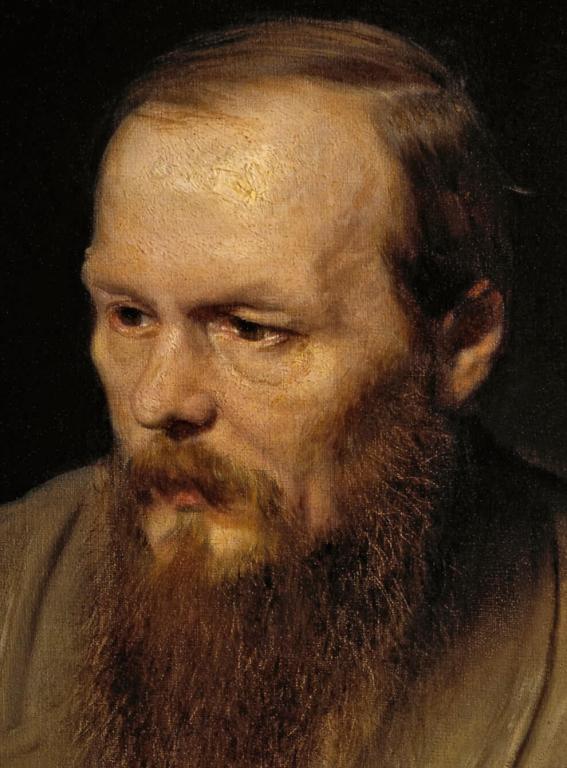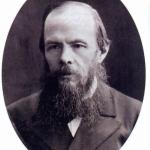Yesterday we discussed anti-Protestantism, which brings me the pretext to bring up a bit of anti-Catholicism from Fyodor Dostoevsky, the great Russian novelist. Catholic readers, please don’t be offended. I bring up this passage because it speaks so well to current issues that go beyond Catholicism.
We Protestants tend to associate Orthodoxy with Catholicism, since they seem very similar to us. But the Orthodox have their own tradition of anti-Catholicism. Hardcore Orthodox Christians can sound like hardcore Lutheran Christians in considering the Pope–or, the office of the papacy–to be the Antichrist.
In that church workers’ book discussion group that I go to and that I have mentioned before, we read Dostoevsky’s novel The Idiot. I had read other of his novels–Crime & Punishment, Brothers Karamazov–and found them profound, brilliantly written, and deeply Christian. But they were intense to the point of being exhausting. The Idiot, though–equally profound, brilliantly written, and deeply Christian–is much lighter in tone, to the point of being comic, and I found it absorbing and hard to put down.
In the novel, Dostoevsky said that he attempted to “depict a completely beautiful human being,” a genuinely good person, a devout Christian who actually does love his neighbors as himself. Those neighbors, though, often mistakenly take him for an “idiot.” And yet, eventually, he wins them over, though not without hardship in this sin-ridden world.
As has often been said, it is easier for writers to create an interesting villain than an interesting “good guy.” But Dostoevsky pulls this off. The character of Prince Myshkin (“prince” being the highest rank of the Russian aristocracy, not the son of a king) is fascinating and complex. As our discussion group concluded, he is not a “Christ figure,” as such, since he is not a sacrificial victim. Rather, he is a “Christian figure.”
In the words of the excellent Wikipedia article about the novel, Dostoevsky “wanted to start with a man who was already a truly Christian soul, someone who is essentially innocent and deeply compassionate, and test him against the psychological, social and political complexities of the modern Russian world. It was not only a matter of how the good man responded to that world, but of how it responded to him.”
The plot involves multiple lovers’ triangles and a host of colorful characters, including the beautiful Nastasya, who had been taken in as an orphaned child by a wealthy landowner, who groomed her until she grew up to be his mistress. This shocking evil has made her a “fallen woman,” whom Myshkin has compassion upon, which turns to love. This cynical and devastatingly witty woman, in turn, is torn between her love for Myshkin and her self-loathing attraction to the brutal rake Rogozhin.
Anyway, in the course of this novel, which I highly recommend, Myshkin, attending a sophisticated party, embarrasses the company by going off on an anti-Catholic rant.
He says Catholicism is concerned with holding temporal power. This, he says, makes it Antichrist. When churches exercise political power, he says, some people react against them to become atheists. And in the religious void, their spiritual thirst leads them to a materialistic alternative that gives them a transcendent cause and a moral framework: socialism. The alternative is for churches to let the pure light of the true Christ shine.
Tomorrow we’ll look at the text.
Illustration: Portrait of Fyodor Dostoevsky by Vasily Perov, CC BY-SA 3.0 <https://creativecommons.org/licenses/by-sa/3.0>, via Wikimedia Commons














